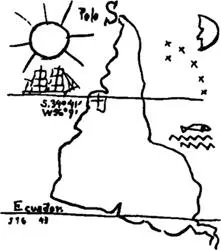• people shall not be driven by cars, or programmed by computers, or bought by supermarkets, or watched by televisions;
• the TV set shall no longer be the most important member of the family and shall be treated like an iron or a washing machine;
• people shall work for a living instead of living for work;
• written into law shall be the crime of stupidity, committed by those who live to have or to win, instead of living just to live like the bird that sings without knowing it and the child who plays unaware that he or she is playing;
• in no country shall young men who refuse to go to war go to jail, rather only those who want to make war;
• economists shall not measure living standards by consumption levels or the quality of life by the quantity of things;
• cooks shall not believe that lobsters love to be boiled alive;
• historians shall not believe that countries love to be invaded;
• politicians shall not believe that the poor love to eat promises;
• earnestness shall no longer be a virtue, and no one shall be taken seriously who can’t make fun of himself;
• death and money shall lose their magical powers, and neither demise nor fortune shall make a virtuous gentleman of a rat;
• no one shall be considered a hero or a fool for doing what he believes is right instead of what serves him best;
• the world shall wage war not on the poor but rather on poverty, and the arms industry shall have no alternative but to declare bankruptcy;
• food shall not be a commodity nor shall communications be a business, because food and communication are human rights;
• no one shall die of hunger, because no one shall die from overeating;
• street children shall not be treated like garbage, because there shall be no street children;
• rich kids shall not be treated like gold, because there shall be no rich kids;
• education shall not be the privilege of those who can pay;
• the police shall not be the curse of those who cannot pay;
• justice and liberty, Siamese twins condemned to live apart, shall meet again and be reunited, back to back;
• a woman, a black woman, shall be president of Brazil, and another black woman shall be president of the United States; an Indian woman shall govern Guatemala and another Peru;
• in Argentina, the crazy women of the Plaza de Mayo shall be held up as examples of mental health because they refused to forget in a time of obligatory amnesia;
• the Church, holy mother, shall correct the typos on the tablets of Moses and the Sixth Commandment shall dictate the celebration of the body;
• the Church shall also proclaim another commandment, the one God forgot: You shall love nature, to which you belong;
• clothed with forests shall be the deserts of the world and of the soul;
• the despairing shall be paired and the lost shall be found, for they are the ones who despaired and lost their way from so much lonely seeking;
• we shall be compatriots and contemporaries of all who have a yearning for justice and beauty, no matter where they were born or when they lived, because the borders of geography and time shall cease to exist;
• perfection shall remain the boring privilege of the gods, while in our bungling, messy world every night shall be lived as if it were the last and every day as if it were the first.


A Question
In the twelfth century, the official geographer of the kingdom of Sicily, al-Idrisi, drew a map of the world, the world that Europe knew about, with south on top and north on the bottom. That was common in mapmaking back then. And that’s how the map of South America was drawn eight centuries later, with south on top, by Uruguayan painter Joaquín Torres-García. “Our north is south,” he said. “To go north, our ships go down, not up.”
If the world is upside down the way it is now, wouldn’t we have to turn it over to get it to stand up straight?
This book was completed in August 1998. Check your local newspaper for an update.
THE LOOKING-GLASS SCHOOL
THE STUDENTS
Brisset, Claire. Un monde qui dévore ses enfants (Paris: Liana Levi, 1997).
ChildHope. Hacia dónde van las niñas y adolescentes víctimas de la pobreza. Report on Guatemala, Mexico, Panama, the Dominican Republic, Nicaragua, Costa Rica, El Salvador, and Honduras. April 1990.
Comexani. IV informe sobre los derechos y la situación de la infancia (Mexico: Colectivo Mexicano de Apoyo a la Niñez, 1997).
Dimenstein, Gilberto. A guerra dos meninos: Assassinato de menores no Brasil (São Paulo: Brasiliense, 1990).
Gibert, Eva, et al. Políticas y niñez (Buenos Aires: Losada, 1997).
Iglesias, Susana, with Helena Villagra and Luis Barrios. “Un viaje a través de los espejos de los Congresos Panamericanos del Niño,” in UNICEF/UNICRI/ILANUD, La condición jurídica de la infancia en América Latina (Buenos Aires: Galerna, 1992).
Monange/Heller. Brésil: Rapport d’enquête sur les assassinats d’enfants (Paris: Fédération Internationale des Droits de l’Homme, 1992).
Organización International del Trabajo. Todavía queda mucho por hacer: El trabajo de los niños en el mundo de hoy (Geneva: OIT, 1989).
Pilotti, Francisco, and Irene Rizzini. A arte de governar crianças (Rio de Janeiro: Amais, 1995).
Tribunale Permanente dei Popoli. La violazione dei diritti fondamentali dell’infanzia e dei minori (Rome: Nova Cultura, 1995).
United Nations Children’s Fund. State of the World’s Children 1997 (New York: UNICEF, 1997).
——. State of the World’s Children 1998 (New York: UNICEF, 1998).
INJUSTICE 101
Ávila Curiel, Abelardo. Hambre, desnutrición y sociedad: La investigación epidemiológica de la desnutrición en México (Guadalajara: Universidad, 1990).
Barnet, Richard Jr., and John Cavanagh. Global Dreams: Imperial Corporations and the New World Order (New York: Simon & Schuster, 1994).
Chesnais, François. La mondialisation du capital (Paris: Syros, 1997).
Food and Agriculture Organization. Production Yearbook (Rome: FAO, 1996).
Goldsmith, Edward, and Jerry Mander. The Case against the Global Economy (San Francisco: Sierra Club, 1997).
Hobsbawm, Eric. Age of Extremes: The Short Twentieth Century, 1914–1991 (New York: Pantheon, 1994).
Instituto del Tercer Mundo. Guía del Mundo, 1998 (Montevideo: Mosca, 1998).
International Monetary Fund. International Financial Statistics Yearbook (Washington: IMF, 1997).
McNamara, Robert. In Retrospect (New York: Times Books, 1995).
Ramonet, Ignacio. Géopolitique du chaos (Paris: Galilée, 1997).
United Nations Development Program. Human Development Report 1995 (New York: UNDP, 1995).
——. Human Development Report 1996 (New York: UNDP, 1996).
——. Human Development Report 1997 (New York: UNDP, 1997).
World Bank. World Bank Atlas (Washington: World Bank, 1997).
——. World Development Indicators (Washington: World Bank, 1997).
——. World Development Report, 1995 (Oxford: Oxford University Press, 1996).
Читать дальше













